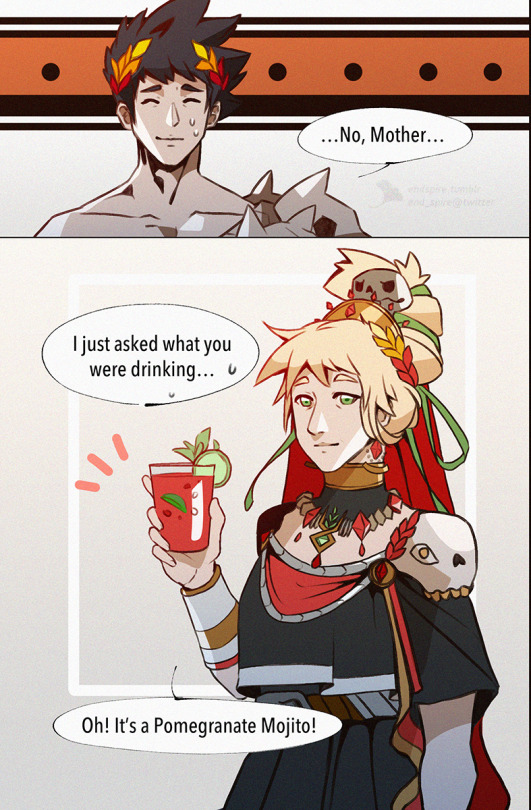💀 Offering Oil For The Dead 💀

💀 Offering Oil For The Dead 💀
Here’s a oil that I made in honor of Thanatos (also props to him for giving me this advice to fill my skull dropper!) This oil is to be used as a offering to Chthonic deities and spirits. You can anoint a candle when working as well as this oil is suppose to have a soothing feel to it for comforting!
What you’ll need: A Carrier oil (I would recommend olive oil but I’ll be using Vitamin E oil), Lavender (essential oil or the herb it self), Rose petals/buds, Myrrh (since this works well for Hades and Thanatos I’ve heard and can be either essential oil or the ashes from incense)
Optional things you can add: Poppy seeds, a bone, graveyard dirt, something dead, a quartz crystal, Selenite crystal, Willow bark or leaf (this aids with safe passing in the afterlife and is also good for protection against negativity and evil).
Directions: (usually when I’m making an oil or potion I light candles and burn incense, along with playing soothing/fitting music. Just a quick note!)
Cleanse the bottle first ( I did so with my juniper smudge wand). Add each item into your bottle, making SURE your adding your intent. (Lavender for peace, Rose for remembrance, Myrrh for troubled souls and can help with protection.) When adding a bone or something dead make sure to thank the spirit to the item. And your done!
NOTE: If you do not want to use oil you can use water for this! You can always modify this as well :)
More Posts from Ninivspace and Others





🌿the myth of minthe
Persephone
Persephone isn’t a damsel in distress, she has never been. She was vibrant, rebellious and strong, and that’s what made Hades fall in love with her in the first place. She loved her husband and her mother, the land of the living and the land of the death, she was full of love, full of the feeling of home. And that’s why Homer described her as a formidable, venerable and majestic, the true queen of the Underworld. Persephone is everywhere for me…In the feeling of power and confidence every time I commit an act of rebellion. In the love I put on taking care of my plants, and in the feeling of pride of watching them grow. The warm feeling I have after arriving home and watching my dog come to welcome me after a weekend out. In every kiss of a couple who hasn’t seen each other in a long time, and in every student smile when they have a homemade meal with their parents after an eternity away from home. She is in every child who loves their parents, even when they make a huge mistake, and in every married couple who treat their partner as an equal and loves them with all their heart. She is a daughter, a godess, a wife, a queen… Cicically moving, eternally returning.

-This artwork belongs to @greekmyth_mika (in Instagram and Twitter) aka Me, so please don’t steal my artwork or repost it anywhere. Thanks ^^-
How to pray to the chthonic gods 🪦 🌒
Position
When praying to underworld deities, we should direct our prayers downwards. An example of this is seen in the ninth scroll of the Iliad when Althaea prays to Haides and dread Persephone by kneeling and beating her hands on the ground. Whereas women wore their hair up or covered for ouranic rituals, they wore their hair down in chthonic rituals. The prayer should be murmured.
Offerings
Chthonic Theoi received special nighttime offerings of black animals, unmixed wine and special libations of milk and honey. Animal sacrifice was always done in a holókaustos--a sacrifice where the entire animal was burned and none of the meat was saved for human consumptions.
Homer in the Odyssey writes Circe advising Odysseus how to perform a libation to the dead:
"Draw near then, as I bid you, hero, and dig a trench two feet square, then pour a libation all around to the dead, first of milk and honey, then of sweet wine, thirdly of water, sprinkled with white barley meal."
Prayer format
The format is the same as when praying to any other theoi: Invoke the god, introduce yourself, make an argument as to why they should listen to you, and make a request .
Who are the underworld deities?
- Haides, King of the underworld
- Persephone, Queen of the underworld
- Hecate, Goddess of magic
- Thanatos, God of death
- Hermes Athanatus Diactorus, the chtonic aspect of Hermes in which he guides souls to the underworld
- Nyx, primordial Goddess of the night
- Hypnos, God of sleep
- Charon, ferryman of the dead
- Cerberus, guardian of the underworld
- The Furies, goddesses of vengeance and retribution
Sources:
- http://hadesandtheafterlife.weebly.com/respecting-hades.html
- http://baringtheaegis.blogspot.com/2015/03/how-to-pray-to-khthonic-gods.html?m=1
- https://homericist.tumblr.com/post/677291374969815040/there-are-three-main-parts-to-prayer-in-ancient
General Etiquette for Working with the Dead
These are some of the guidelines I follow when working with the dead:
When entering a graveyard, be sure to greet and leave something for the guardian of the graveyard.
Never walk on the graves of the deceased.
Never take anything out of the graveyard without permission of the guardian or a specific grave’s resident.
Never take items people have left for their loved ones off the graves.
Only gather graveyard dirt from the perimeter of the graveyard, never from the graves themselves.
Upon leaving the graveyard, say farewell to the dead you encountered, and the guardian.
Never force the dead to work for you, if they are unwilling or unable to aid you try again later or try another spirit.
Be mindful of the dead’s beliefs in life, not all will be friendly to those who practice magic.
Give the dead the same respect and thought that you yourself would wish to be given.
Obey your local laws and ordinances regarding the dead and graveyards/burial sites.

🌻 Persephone 🌻
Persephone Keeper of the Dark With hair wreathed in flowers Hands gentle yet firm She takes her throne with grace While the world falls asleep
Persephone Keeper of the Spring Whose ethereal pulse gives life To the light With a gown laced in blooms The ivy climbs up to greet her
🌸🌸🌸


Highly recommended book.
Norse Mythology by Hourly History.
Types of “restless” dead, relatively active ghosts likely to manifest themselves (and convenient for magical exploitation):
1. Aoroi (from αωροσ, untimely): “those dead before their time.” Those cheated of their full stint of life bitterly stayed back to haunt the land of the living of which they had been deprived. In theory anyone who died of anything other than of natural causes in old age could generate a ghost restless qua aoros, although as a class aoroi tended to be conceptualized primarily as the ghosts of children or babies. 2. Bi(ai)othanatoi (from βιαιος and θανατος, violent and death): “those dead by violence.” The battle-dead and executed criminals, although murder victims and suicides provide the bitterest ghosts in this class. 3. Agamoi (from αγαμος, unmarried): “those dead before marriage.” Both male and female ghosts could be assigned this category, although the female ones were regarded as particularly bitter, insofar as marriage and the motherhood consequent upon it were a woman’s defining rights in antiquity. 4. Ataphoi (from αταφος, unburied): “those deprived of burial.” Whatever the circumstances of death, a ghost could not achieve rest without the due funeral rights. These were importantly distinct from the mere insertion of the corpse into a hole in the ground, and indeed the concealment of a dead body in precisely this way is often presented as the chief obstacle to the peace of its soul.
[Daniel Ogden, Magic, Witchcraft, and Ghosts in the Greek and Roman Worlds]
Hades devotion series masterpost
Hades 101- part 1, part 2, part 3, part 4, part 5
Hades 102- part 1, part 2, part 3, part 4, part 5

-
 jonkieeangel liked this · 10 months ago
jonkieeangel liked this · 10 months ago -
 blooxxy liked this · 10 months ago
blooxxy liked this · 10 months ago -
 xjashinx liked this · 1 year ago
xjashinx liked this · 1 year ago -
 maxtimiii liked this · 1 year ago
maxtimiii liked this · 1 year ago -
 starrrrryskies liked this · 1 year ago
starrrrryskies liked this · 1 year ago -
 brendia-t-stuff liked this · 1 year ago
brendia-t-stuff liked this · 1 year ago -
 demonbarbervibes reblogged this · 1 year ago
demonbarbervibes reblogged this · 1 year ago -
 unicorpseboi liked this · 1 year ago
unicorpseboi liked this · 1 year ago -
 chemicalcatastrophecat liked this · 1 year ago
chemicalcatastrophecat liked this · 1 year ago -
 life4fterdeath liked this · 1 year ago
life4fterdeath liked this · 1 year ago -
 yessirrrrrrrrrrrrr liked this · 1 year ago
yessirrrrrrrrrrrrr liked this · 1 year ago -
 starsofdarknebula reblogged this · 1 year ago
starsofdarknebula reblogged this · 1 year ago -
 cheshirecatsyndrome liked this · 1 year ago
cheshirecatsyndrome liked this · 1 year ago -
 90days-90reasons liked this · 1 year ago
90days-90reasons liked this · 1 year ago -
 silveratlxs reblogged this · 1 year ago
silveratlxs reblogged this · 1 year ago -
 kellskbells reblogged this · 1 year ago
kellskbells reblogged this · 1 year ago -
 kellskbells liked this · 1 year ago
kellskbells liked this · 1 year ago -
 folkloricwitch reblogged this · 1 year ago
folkloricwitch reblogged this · 1 year ago -
 aka-kiraaa liked this · 1 year ago
aka-kiraaa liked this · 1 year ago -
 secretfishgoopempath liked this · 1 year ago
secretfishgoopempath liked this · 1 year ago -
 starsofdarknebula reblogged this · 1 year ago
starsofdarknebula reblogged this · 1 year ago -
 starsofdarknebula reblogged this · 1 year ago
starsofdarknebula reblogged this · 1 year ago -
 watergrcves reblogged this · 1 year ago
watergrcves reblogged this · 1 year ago -
 ladypandorastar1 liked this · 2 years ago
ladypandorastar1 liked this · 2 years ago -
 connecting-refs reblogged this · 2 years ago
connecting-refs reblogged this · 2 years ago -
 brujaluzdelunablogs liked this · 2 years ago
brujaluzdelunablogs liked this · 2 years ago -
 williamholmes liked this · 2 years ago
williamholmes liked this · 2 years ago -
 zombiegutsandglory liked this · 2 years ago
zombiegutsandglory liked this · 2 years ago -
 seleniteseas reblogged this · 2 years ago
seleniteseas reblogged this · 2 years ago -
 stapleworm liked this · 2 years ago
stapleworm liked this · 2 years ago -
 suburban-refuge liked this · 2 years ago
suburban-refuge liked this · 2 years ago -
 gay-mormon-wizard liked this · 2 years ago
gay-mormon-wizard liked this · 2 years ago -
 kristabella reblogged this · 2 years ago
kristabella reblogged this · 2 years ago -
 kristabella liked this · 2 years ago
kristabella liked this · 2 years ago -
 prince-of-the-gays liked this · 2 years ago
prince-of-the-gays liked this · 2 years ago -
 ninivspace reblogged this · 2 years ago
ninivspace reblogged this · 2 years ago
